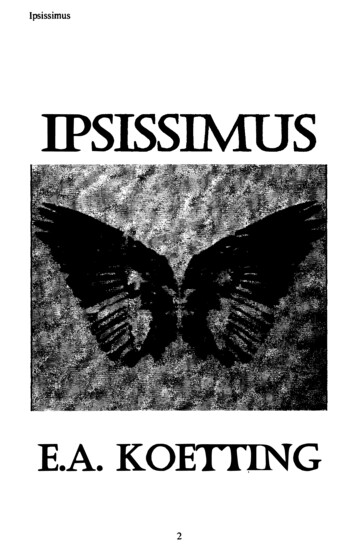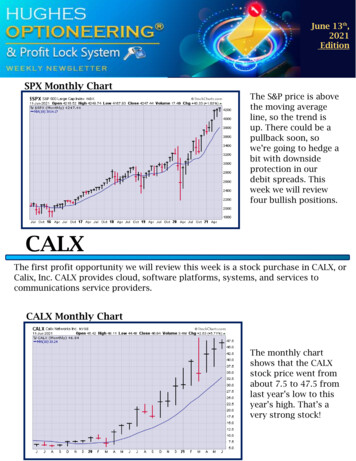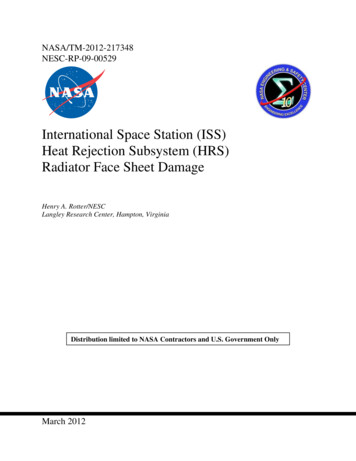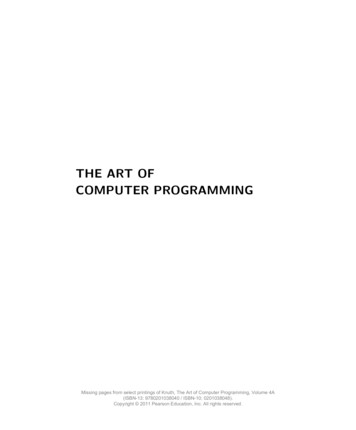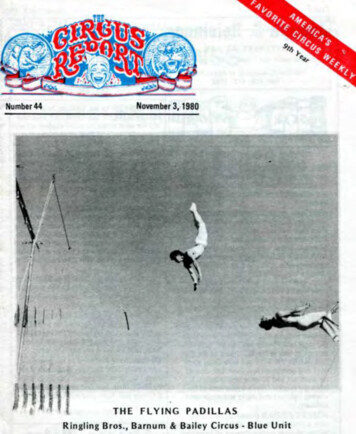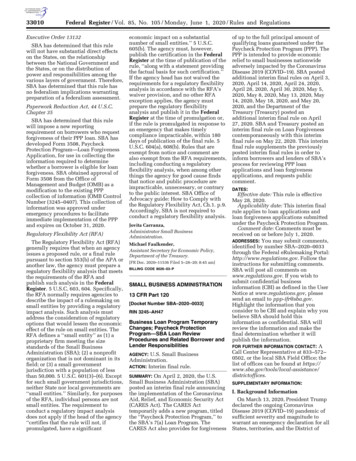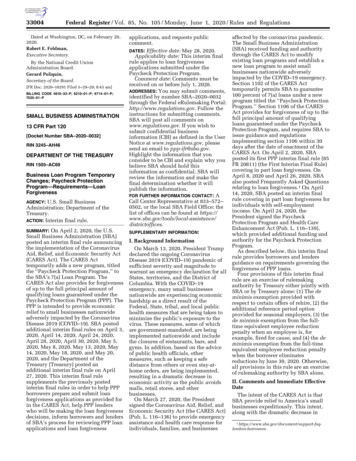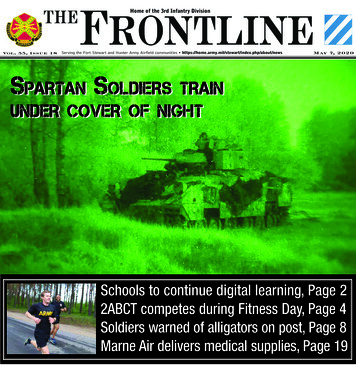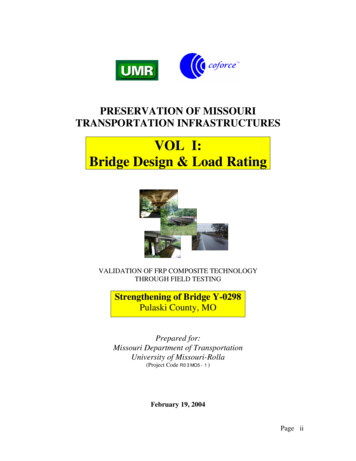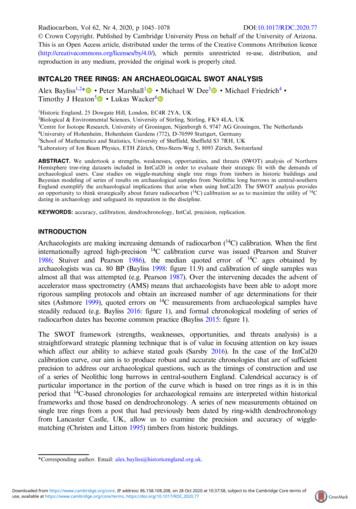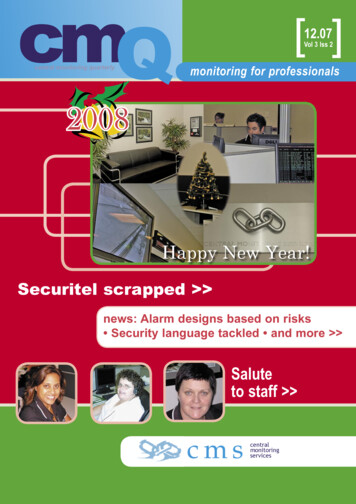
Transcription
cmQcentral monitoring quarterly[ ]12.07Vol 3 Iss 2monitoring for professionals2008Happy New Year!Securitel scrapped news: Alarm designs based on risks Security language tackled and more Saluteto staff cmscentralmonitoringservices
imhoA busy year contributing to successIT has, indeed, been a busy and rewarding year for Central Monitoring andits customers — and the one word that stands out is contribution.We completed our monitoring centre refurbishment and upgrade with oursanity (mostly) intact. The result is the best independent monitoring centrein the country, including the latest multi-path technology, top-spec dialerreceivers, and facilities available to our clients (and their customers) secondto none.Of course, what really makes a monitoring centre is its staff. Ours haveproven to be the very best in the business.The year has not been without its challenges, and there have been a fewwins.Neville KielyManaging DirectorOur contribution to the ASIAL Electronic Security Committee has paid offin the form of a new alarm installation Standard based on risk assessment.Through Suzette’s involvement with the NSW ITAB, we also contributedto the development of monitoring operator licence requirements, which wentnowhere for about 2.5 years, and took Suzette’s about five months to solve.We have also been busy through other organisations, such as the MasterLocksmiths Association and the Institute of Security Executives, and ourextensive industry network contributing to industry debate, direction, andeducation of the industry and end-users alike.To that end, our successful dealer evenings — so well attended there weretimes we had to run two or three sessions to fit everyone in — will be backnext year by popular demand.CMQ has also proved to be an important communication tool, as well asour popular website, which is about to be updated.In addition, not only have you been growing — adding new lines each2week — our customer base has grown with more and more companiesturning to CMS for their monitoring requirements, including majorcorporations and brand names with sufficient demand to be classed asCMQ is the official publication ofCentral Monitoring Services11 Porter Street Ryde NSW 2112EMAIL: toring.com.auTEL: 61 1 300 655 009ACN 003 630 877ABN 64 003 630 877Master License Number 401988582CMQ 06.07bureaus.Next year, and the years to come, look to be as busy and possibly evenmore challenging, especially in relation to IP and technology convergence.That’s why we will continue to contribute to industry debate andeducation to help people understand the importance of security monitoring.We will also continue to improve our services, adopting technologysolutions in a timely and efficient manner, all based on real needs,information and education — not fads.In the meantime, all of us at Central Monitoring hope you had a happyChristmas and look forward to playing a part in helping you have a veryprosperous New Year.
Alarms now based on riskALARM systems and upgrade to existingsystems now require a risk assessmentto be conducted prior to installation inorder to meet Australian Standards.Australian Standard AS/NZS2201.1:2007, which details five classesof system design, also requires the riskassessment be documented and theclassification of alarm be selected withagreement from the client.The new standard, which is nowcomplete and going into publication,specifies the minimum requirements forthe design, installation, commissioning,installation and maintenance of intruderalarm systems.It also classifies equipment andsystems interconnected by wire andwire-free links, including detectiondevices, control equipment, warning andsignalling devices, and the necessarypower supply equipment.“The new Standard clearly definesa transmission path and puts a totalemphasis on the manufacturer/supplierto receive an independent productevaluation in relation to the Standardand to give that to the monitoring centre,which then in turn has to ensure that itis installed and maintained that way sothat compliance can be met,” says NevilleKiely, CMS’s managing director.“This now allows all products, includingso-called Securitel replacement products,to be rated, which in the past have beensold on loose and barely understandableterminology and opinions.”The aim is to eventually provide outof the box solutions, which address thevarious classes of requirement.“Installers are already using extremelycomplicated panels and they will have nodifficulty in understanding the conceptsbehind the latest Standards,” says Kiely.By tightening requirements, he adds,the Standard will also allow for a greaterdegree of accountability.“Monitoring centres have now got tomaintain records of products used, howthey are used and the services requiredto maintain them. The whole thing isgoing to tie together,” says Kiely.That accountability extends totechnical changes limiting the ability toavoid responsibility.“In the Standard, polling from themonitoring centre, when Class 4 or 5 areapplied, goes from the monitoring centreto the STU and panel, whereas Securitelonly polls the STU. Moreover, Securitelwas polled from the exchange, not fromthe monitoring centre,” says Kiely.“When the panel was gone, you didn’tknow about it. That shortcoming hasBeware season bugsBOGONG moths were early this year, and other seasonal bugs and beasts can upsetalarm systems, too.Christmas decorations, for example, can be put up without a care for the PIR in thecorner. And, what about air conditioning units that are not programmed to cope withholiday days? Then, there’s heat and sudden rain confusing things.Why not speak to CMS customer care and find out what you should be talking tocustomers about — before customers start bugging you.Tip o' the hat.FANTASTIC customer service isthe only way to win an employee ofthe month award at CMS, and thisissue’s winners are:Tracey, who provides outstandingcustomer service and specialattention to alarm installers.Amanda, though new to theteam, has already demonstratedher strong customer service skillsto complement CMS’s alreadyexcellent level.Shirley, who was a wonderfulcustomer service operator on theday shift, now continues to be soon the graveyard shift and Sundayafternoons.CMQ 06.07TraceyAmandaShirleynewsbeen picked up in this Standard. Theequipment to do all this is held in themonitoring centre, not on a third partypremises, and no one else is handlingthe data — it is not going through athird party who can sometimes absolvethemselves of any responsibility.”By adopting a risk-assessed approachto alarm system design, installers willnow have the opportunity to sell securityon a more professional footing.“Clients are asking for services, suchas GPRS, without really understandingwhat they mean,” says Kiely. “We havebeen explaining to installers the clientshould not be saying that."They should be saying, ‘We want aClass 3 polled transmission system,please.’”There is also a high degree of futureproofing.“The Standard has been written so youcan use any technology,” says Kiely.“Specifications and insurancerequirements will be selected basedon the risk assessment to the classrequired.”In this way, new transmission paths,even those unheard of as yet, will be ableto comply with the Standard.New websitelaunched3CMS is launching its new website,providing important information,documents and tools.“The internet has become anincreasingly important avenue forcommunication with installers,”says CMS’ Customer Service andMarketing Manager, Scott.“We have invested in aprofessional design, which notonly looks better, but morefunctional, which makes it easierfor us to keep updated and forcustomers to access the latestinformation.”Visit www.centralmonitoring.com.au and let CMS know whatyou think.
news Farewell SecuritelTELSTRA has finally ended speculationabout the future of Securitel byannouncing it no longer has one.The announcement, however, is timelyfor CMS since it has implementedalternative solutions to the 22-year-oldnetwork, in the form of Fratech Multipath.Selling of new connections to Securitelwill stop in February 2008, sales toexisting customers cease as of January1, 2009, and all services will be cut byDecember 31, 2009.Telstra announced two years agoplans to migrate its diverse collection ofnetworks to a single IP infrastructure.“As part of that plan we haveidentified a number of ageing, obsoleteand duplicated legacy networks,products and services. These will beprogressively withdrawn from sale anddecommissioned for a range of differentreasons,” says Nerida Caeser, ExecutiveNational Sales, Telstra Enterprise andGovernment, in an announcement tocustomers in late November.“Telstra will provide [customers] withtimely and detailed communicationson these changes and, whereappropriate, successfully4migrate [their] services toalternative solutions.”Telstra is spruiking as alternativesolutions:· Telstra Secure, an IP-based securitysolution that enables security firms toprovide back to base alarm monitoringservices.· Telstra Business Secure, an IPbased solution that uses an internetbased access medium to provide alarmmonitoring.In the case of the latter, TelstraBusiness Secure is a premium securityservice available to Internet DirectADSL and BigPond BroadbandADSL customers, putting it in directcompetition with alarm installers.A major selling point of BusinessSecure is that it allows customers toview events at their sites from differentparts of the world at any time, viaremote video monitoring using standardcameras.As an indicator of the ways things areheading, Telstra’s website points out:“With a conventional dial based alarmservice, the end user incurs a numberof costs including the monitoringservice fee and the PSTN call chargesgenerated by the alarm system. TelstraBusiness Secure does not use a dial upservice to send security information tothe security company. Depending onthe number of calls that your currentservice makes per day, this could meana reduced phone bill for calls that thealarm system made.”CMS has been gearing up for thechange for some time, says CMSManaging Director, Neville Kiely, andhas a replacement solution is already inplace in the Fratech Multi-Path service,which can handle multiple paths,including IP, GPRS, PSTN and GSM, allwith polling should it be required.“We have made a commercial decisionto go with Fratech, rather than trying toimplement five different solutions,” saysKiely. “The product we have chosen iscapable of adapting to any new networkand meets all the demands of the newmonitoring standards — nothing elsemeets what we require.”Although CMS has built a relationshipwith the Fratech manufacturers todevelop enhancements to the product,Kiely would not rule out adding othersolutions.“We are continuing to evaluate otherproducts,” says Kiely.Kiely urged installers to beginworking with customers now to managethe handover.“All Securitel clients will require avisit to site and the changing of one ortwo boxes,” says Kiely.Anyone needing help or advice withphasing out Securitel should contactCMS customer service.Patrol response addedATMAAC has been added to CMS’ roster of approved alarm responsecompanies.ATMAAC’s CEO, Brian Kelly, served in the Australian Army with theAustralian Paratroopers and Special Forces units on operations in SouthEast Asia and Europe. He also served with the Royal Marines in the UKand was an instructor with the SAS at the International Special ForcesSchool in Germany.After 15 years military experience, Kelly worked four years in security,before forming Sydney-based ATMAAC, a full-service corporate servicescompany supporting client organisations in security, facilities management,security risk solutions and training.Find out more about alarm response from CMS customer service.CMQ 06.07Vic toughensbusiness licencerulesVICTORIAN regulators havestepped up training andqualifications for businesslicence holders.The Private Security Act, 2004,set competency requirementsto be met by the nominee ofthe security business license,which requires applicants todemonstrate that you either:· possess the appropriatequalifications, knowledge,training or experience, whichis a Certificate IV in Security &Risk Management qualificationor· are a member of an ApprovedSecurity Organisation, whichincludes agreeing to supply aCV outlining a minimum of fiveyears experience in the securityindustry, and committing toa continuing professionaldevelopment program.ASIAL has been appointedas an Approved SecurityOrganisation (ASO) in Victoria,and will now:· Monitor the industryexperience levels of members;· Develop appropriateContinuing ProfessionalDevelopment (CPD) programs;· Monitor and report on thecompliance of members withinthe CPD program.Under the CPD program, thenominated representative ofthe licensed security businesswill be required to attain 12CPD points per year. Pointscan be attained in a varietyof ways, including attendanceat conferences, workshops,industry briefings, seminarsand training (both face-to-faceand web-based).Kelly, former special forces, headssecurity company.
Licence deadline passedHOLDERS of NSW securitylicences that failed to submit anapplication to surrender, retainor take-up Class 1 and/or Class 2Licence Subclasses by November30, 2007, are now unlicensed.The NSW Security IndustryRegistry says individuals whodid not submit a completedapplication form to the SIR by thedeadline will have their securitylicence automatically suspended.In August, the SIR mailed toall licence holders personalisedapplication forms, and informationoutlining the recent amendmentsto legislation regulating thesecurity industry.Licence holders need to read thefact sheets with the applicationform carefully to ensure selectionsare understood, since getting itwrong with one class can have aknock-on effect with other licensesbeing revoked.For example, Class 1 licenceholders who wish to retain theirsubclasses or take up any of thenew subclasses must meet newtraining requirements for eachsubclass and failure to upgradetraining within set timeframeswill result in all licence subclassesbeing revoked.The SIR can be contactedon 1300 362 001 for moreinformation.Meanwhile, the NSW publiccan now check online for licencedetails and current status ofsecurity, commercial agents andprivate inquiry agent’s licencesThrough the New South WalesPolice and the SIR websitesecurity and CAPI licences canbe checked by entering a validlicence number.Details available on masterlicences include the name of themaster licence nominee, company/business name, trading name/s,licence status, expiry date, andclass.Individual licence inquiries givethe holder’s name, licence status,expiry date and class.Under NSW law, individualsand corporations carrying onunlicensed security activities faceserious penalties.To access the register, ister/licenceCheck/Search.jspWA introduces strict controlsSECURITY personnel will face a range of stricter licensingrequirements, including drug testing, identification checks,fingerprinting and licence cancellation provisions, under new WA laws.Police and Emergency Services Minister John Kobelke said thelaws would strengthen existing regulatory control in respect to thesecurity, crowd control and inquiry investigation (private investigation)industries.newsSecuritycrime linksinvestigatedTHE Australian CrimeCommission has calledfor submissions as part ofits investigation into theinvolvement of organised crimein the private security industry.The ACC is also calling forsubmissions on industry andlaw reform that will reduce therisk of criminal infiltration ofthe private security industry,particularly in relation toexploitation of entertainmentand licensed premises byorganised crime groups.The investigation, announced inthe 2007-08 Federal Budget, willcost an estimated 8.7m over twoyears, is asking organisations,companies and individuals ifthey can:· provide information onorganised crime groups beingemployed or represented in theprivate security industry· identify any instances ofcriminal exploitation of theprivate security industry· assist the ACC to identifyvulnerabilities and helpcontribute to the developmentof legislation, policies andprocedures to help makeAustralia’s private securityindustry more hostile toorganised crime groups.Anyone with information cancall a toll free number - 1800 223399 - and remain anonymous. Formore on the ACC, visit: www.crimecommission.com.auMore shonky operators detectedA NEW system of backgroundchecks on people in Queenslandapplying for licences to work inthe security industry has resultedin a doubling of the number ofadverse criminal history checks,according to the Attorney-Generaland Minister for Justice KerryShine.The QLD government expandedthe scope of criminal historychecks on those people applying orrenewing their security licences inOctober.“We are now checking allapplications for unrecordedconvictions and using criminalintelligence and other backgroundinformation provided by theQueensland Police Service tomake decisions about applicants’suitability,” Shine says.“Between October 1 andNovember 9 the Office of FairTrading recorded 387 adversecriminal history check reports,which is more than double thenumber recorded in the previousfive weeks.“Nine people identified underthese adverse criminal historychecks have had their applicationsrefused.”Shine says the Office of FairTrading also conducted a statewide compliance blitz duringOctober targeting entertainmentvenues and licensed premises thatare frequented by schoolies duringtheir celebrations.“Officers inspected 155 premisesand 764 entities throughoutQueensland. So far the Office ofFair Trading has issued a totalof 61 warnings or infringementnotices totaling 14,850 in fines.Breaches ranged from failureto maintain or keep a securityprovider register, operating as anunlicensed security provider, orfailing to update license details.CMQ 06.075
AnalysisPolice contact confusionINDUSTRY frustration ismounting at the lack ofconsistency among police forceson monitoring station contact,protocols, and alarm response.“There is no consistency,” saysNeville Kiely, head of ASIAL’sNational Electronic SecuritySpecial Interest Group.A member of his staff evenattempted to prepare a documentsetting out how central stationoperators should communicatewith each state and territorypolice control room.The result?“You have got to be joking,” saysKiely.Not only do state and territoriesdiffer, rules can vary within aState. For example, Queenslandhas 27 police communicationscentres spread across eightregions, each with its own policy.Beyond a select number of policywonks and industry players,however, the issues are far frompublic knowledge, with manyin the industry unaware of theproblems.“Our industry does not know, thepublic does not know, and we allknow why,” says Kiely.“It is because the police don’twant to say they will not attend.”What tends to happen is thatpolice develop response policies,submit them to the commissioner’soffice, where they can languish formonths, or at times years.6 “In the meantime, the policejust implement the policies,” saysKiely.From an industry viewpoint,much of the issue is about policeattitudes.“The police in some areas feelthey should not have to do thework thatthe industryis gettingpaid for.Now, thatis a terribleattitude,”says Kiely.“ASIALrecognisesthe policeis not anunlimitedresource,but in order to communicate thatto our members and for them tocommunicate it to the public, weneed to know what to tell them,but the police will not tell us.”Various codes of conducts havebeen mooted and have invariablyfallen by the wayside or are still inthe pipeline.Last August, for example, NSWPolice put out a discussion draft ofterms and conditions for allowingcentral stations special access tothe NSW Police Assistance Line(PAL).The NSW model - and most policeforces follow simil
Securitel scrapped Salute to staff news: Alarm designs based on risks . “Specifications and insurance requirements will be selected based on the risk assessment to the class . a reduced phone
